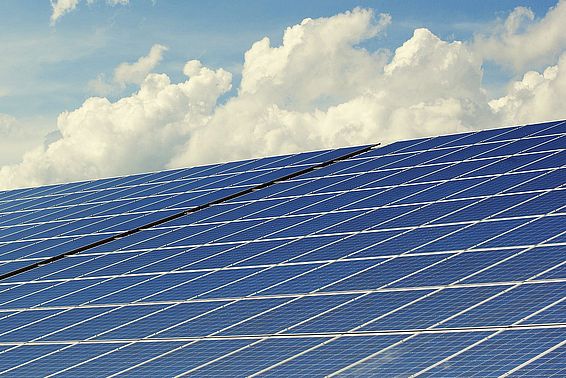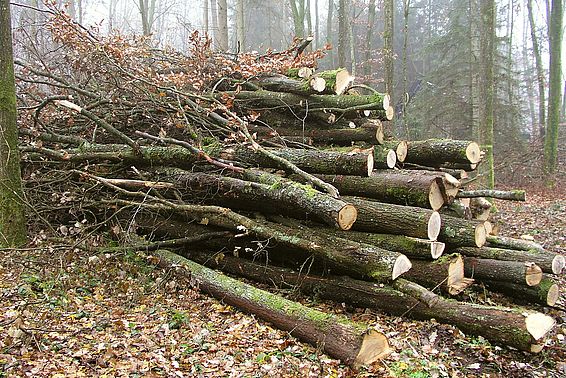27.11.2018 | News WSL
The expansion of renewable energy mandated by the Energy Act will decentralise power and heat generation in Switzerland even further. A survey conducted by the Swiss Federal Institute for Forest, Snow and Landscape Research (WSL) suggests that this process may be driven by regionally and locally based energy cooperatives, many of which work closely with communes.
Among its many aims, the fully revised Energy Act adopted in 2017 sets out to boost the use of renewable, locally available energy sources. The involvement and financial support of private individuals and communes are essential for achieving this aim. This is a source of opportunities for local or regional organisational and ownership structures such as energy cooperatives, which enable both private individuals and communes of any size to contribute directly to the generation and supply of energy.
Broadly based, jointly financed cooperatives are already running small to medium-sized energy generation facilities, such as photovoltaic systems for power generation or facilities to produce heat with wood. Experience from recent decades has shown that local and regional energy cooperatives mainly bolster and promote energy policy in smaller and medium-sized communes.
Although energy cooperatives for power generation and distribution have existed in Switzerland for over 120 years, no comprehensive empirical data were available regarding their structures and activities. To remedy this, researchers from the Swiss Federal Institute for Forest, Snow and Landscape Research (WSL) decided to study energy cooperatives in Switzerland within the framework of National Research Programme 71, "Managing energy consumption". In a survey conducted in 2016, WSL contacted all 289 energy cooperatives listed in the Swiss Commercial Register to gather information on their organisational structure, their activities in power and heat generation, their finances, the political framework and their outlook for the future.
Numerous new energy cooperatives
A total of 136 energy cooperatives (47%) responded to the survey, around half of which are located in the cantons of Aargau, Bern and Zurich. Most of the responding energy cooperatives generate electricity with their own photovoltaic facilities: 93% operate such facilities and 66% want to expand them in the next five years. Of the cooperatives that generate heat, 75% use woody biomass.
Notably, the approximately 150 cooperatives that formed in the 1990s and after 2011 (Federal Council decision on the energy transition) almost exclusively use renewable energy sources. The cooperatives, which are mainly active in rural areas, aim to promote decentralised energy generation, strengthen local identity and the local community, and offer an alternative to nuclear energy. Most energy cooperative members are private individuals, farmers, and communes or their representatives. While Switzerland has roughly the same number of cooperatives per thousand inhabitants as Germany, Swiss cooperatives are much smaller and are less present in the public debate. However, this contrasts with their – often close – cooperation with communes, energy supply companies and local communities.
Despite their strengths, cooperatives are not optimistic about the future
Most Swiss energy cooperatives are economically sound, but have limited potential for growth and development. When asked which factors inhibit their future development, they most frequently mention lower government subsidies (compared to Germany) and insufficient market outlets for the energy generated. In view of this, around 60% of the responding cooperatives rate their growth potential as "small", and 27% as "moderate". Nevertheless, most of them hope to achieve moderate growth on a number of fronts, particularly power generation capacity, customer base and business turnover.
"On the whole, the survey shows that cooperatives could play a pioneering role in promoting renewable energy – with a broad funding base and widespread public acceptance," says WSL project manager Irmi Seidl. Energy cooperatives are key actors because they bring new developments and social values into the debate about our energy future and encourage decentralised use of renewable energy sources. "The energy transition needs to be supported by the population," says Benjamin Schmid (WSL), who helped to design and analyse the survey. "Energy cooperatives could contribute to this by offering direct opportunities for local involvement in energy policy."
This research project is part of the Swiss National Science Foundation (SNSF) National Research Programme "Managing energy consumption" (NFP 71). More information about the National Research Programme can be found at www.nfp71.ch.
Link ¶
Contact ¶
Copyright ¶
WSL and SLF provide image and sound material free of charge for use in the context of press contributions in connection with this media release. The transfer of this material to image, sound and/or video databases and the sale of the material by third parties are not permitted.



